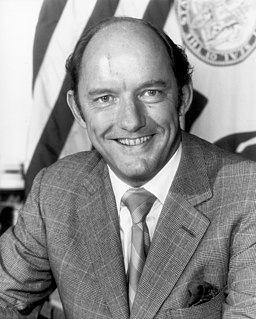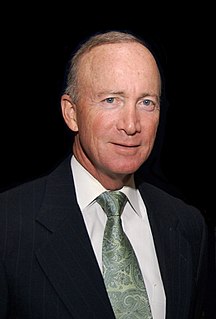A Quote by Steven Van Zandt
I've always considered the government taking one out of every two dollars I earn absolute tyranny.
Related Quotes
To rail and rant against tyranny is to manifest inferiority, for there is no tyranny but ignorance; to be conscious of one's powers is to lose consciousness of tyranny. Self government is not a remote aim. It is an intimate and inescapable fact. To govern oneself is a natural imperative, and all tyranny is the miscarriage of self government. The first requisite of freedom is to accept responsibility for the lack of it.
It is my view that what is important is cutting government spending, however spending is financed. A so-called deficit is a disguised and hidden form of taxation. The real burden on the public is what government spends (and mandates others to spend). As I have said repeatedly, I would rather have government spend one trillion dollars with a deficit of a half a trillion than have government spend two trillion dollars with no deficit.
Today government touches everything in America and harms almost everything it touches. Federal, state, and local governments together spend 42 out of every 100 dollars we earn. Those who do the taxing and spending have long since ceased to work for the people as a whole. Rather, they work for themselves and for their clients-the education industry, the welfare culture, public-employee unions, etc.
It has been said that terror is the principle of despotic government. Does your government therefore resemble despotism? Yes, as the sword that gleams in the hands of the heroes of liberty resembles that with which the henchmen of tyranny are armed ... The government of the revolution is liberty's despotism against tyranny.
Many people say, "When I get a million dollars, then I'll be happy because I'll have security," but that's not necessarily so. Most people who acquire a million dollars want another and then another. Or they could be like a good friend of mine who made and lost every dime of a million dollars. It didn't bother him a bit. He wasn't excited about it, but he explained to me, "Zig, I still know everything necessary to make another million dollars, and I've learned what to do not to lost it. I'll simply go back to work and earn it again.
Night after night in the '50s, I traveled all over New York City. The promoter had 10 acts, and the winner each night would get five dollars; second place would get three dollars, and third place would get two dollars. He always put the best acts on last so the people wouldn't walk out, and the worst acts went on first. He always put me on first.
Like gold, U.S. dollars have value only to the extent that they are strictly limited in supply. But the U.S. government has a technology, called a printing press (or, today, its electronic equivalent), that allows it to produce as many U.S. dollars as it wishes at essentially no cost. By increasing the number of U.S. dollars in circulation, or even by credibly threatening to do so, the U.S. government can also reduce the value of a dollar in terms of goods and services, which is equivalent to raising the prices in dollars of those goods and services.



































